An interview with Palau President Tommy Remengesau Jr.

After helping to establish the world’s first shark sanctuary in his nation’s waters in 2009, President Tommy Remengesau Jr. of the Republic of Palau signed legislation last year that set aside 80 percent of his small west Pacific island nation’s ocean as a fully protected marine sanctuary. The world’s sixth-largest reserve, the Palau sanctuary covers an area larger than California and has the greatest percentage of any nation’s waters off limits to fishing.
“Creating this sanctuary is a bold move that the people of Palau recognise as essential to our survival,” Remengesau explained. To protect this vast tract, he also signed an international treaty targeting illegal, unreported and unregulated (IUU) fishing. “Palau will not tolerate poachers in our ocean,” he warned. His administration followed up on that warning by confiscating and burning vessels from Vietnam and the Philippines caught illegally fishing in Palau’s waters.
In May 2016 Remengesau was awarded the Peter Benchley Ocean Award for Excellence in National Stewardship. In June, David Helvarg visited Palau and interviewed Remengesau for Alert Diver.
Alert Diver: What led Palau to become a world leader in ocean conservation?
Tommy Remengesau Jr.: Ocean conservation is very much a part of our tradition and livelihood, and we know to sustain our future existence as island people we must balance Nature and development.
AD: What in your own life brought you to the idea of ocean stewardship?
Denne historien er fra Issue 02-2017 (108)-utgaven av Scuba Diver.
Start din 7-dagers gratis prøveperiode på Magzter GOLD for å få tilgang til tusenvis av utvalgte premiumhistorier og 9000+ magasiner og aviser.
Allerede abonnent ? Logg på
Denne historien er fra Issue 02-2017 (108)-utgaven av Scuba Diver.
Start din 7-dagers gratis prøveperiode på Magzter GOLD for å få tilgang til tusenvis av utvalgte premiumhistorier og 9000+ magasiner og aviser.
Allerede abonnent? Logg på
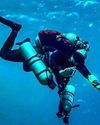
The Making Of A World Record-Breaking Diver
Descending more than 300 metres into the depths of the ocean may sound like a daunting prospect to even the most seasoned diver. But to one man, it was just another a challenge that he set for himself to see how far he was able to push the envelope.

Risk Mitigation: Hose Failure
An unexpected outcome
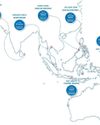
Top 10 Wrecks Of Asia-Pacific
We present a curated list of the top 10 most famous wrecks found in the Asia-Pacific region, listed in no particular order

From The Medical Line: Diving After DCS
DAN medical information specaialists and researchers answer your dive medicine questions
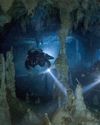
Cave Exploration: Beginning With The End In Mind
Building complex adventures on simple skills
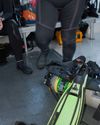
Dive Slate: Stay Safe On Board
When preparing for a dive, safety is at the top of the list – checking gear, learning potential site hazards and discussing procedures with your divemaster or buddy.

101 Tips On Becoming A Better Tek Diver
Technical diving takes divers beyond the typical recreational scuba diving limits, opening up many new and exciting possibilities.
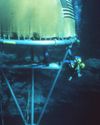
TECHNICAL DIVING TIMELINE (1660–1999)
It’s fair to say that the emergence of “technical diving” in the late 1980s, that is, the introduction of mixed gas technology, and later mixed gas rebreathers to the sport diving community, represented the culmination of hundreds of years of scientific discovery and technological development.

FLYING AFTER DIVING
From the Safety Stop

DIAGNOSING DECOMPRESSION ILLNESS
Incident Insight